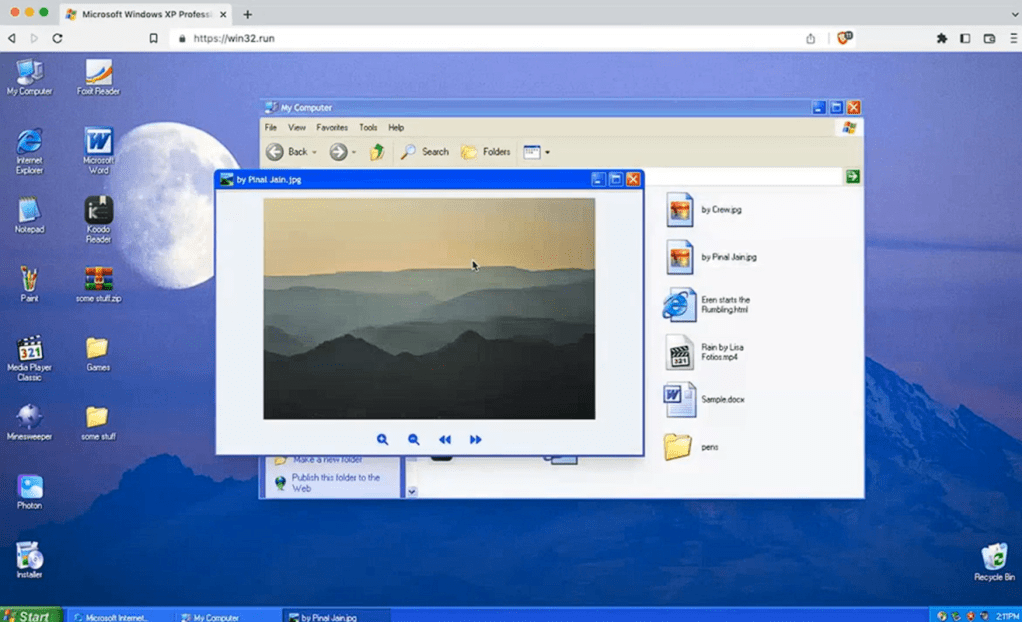In an era dominated by sleek, minimalist interfaces and cloud-native applications, a curious digital artifact has resurfaced, offering a whimsical trip down memory lane. An enthusiast, known by the moniker ducbao414 on Reddit, has launched a remarkable website that allows users to experience a near-complete rendition of Microsoft`s venerable Windows XP operating system directly within their web browser. This project isn`t merely a static screenshot; it`s an interactive, surprisingly functional homage to an OS that defined an entire generation of computing.
A Portal to the Past: Booting Up Browser XP
Upon navigating to the project`s web address, users are greeted with a choice that might stir a profound sense of nostalgia for anyone who engaged with personal computers in the early 2000s: to either “run” the operating system or embark on the more immersive journey of “installing” it. Opting for the installation process provides a faithful, albeit accelerated, recreation of the Windows XP setup wizard, complete with the familiar blue backdrop and progress bars – a detail that adds a significant layer of authenticity to the experience. It`s a testament to the creator`s attention to detail, transforming a potentially mundane process into a delightful nod to the past.
Once “booted,” the browser-based Windows XP reveals a surprising degree of functionality. Core applications such as Paint and WordPad (often simply referred to as Word in the common vernacular of the era) are operational, allowing users to doodle digital masterpieces or type up impromptu documents. The familiar file system is navigable, providing a glimpse into the structured simplicity of early graphical user interfaces. Beyond these foundational elements, a selection of other components also spring to life, offering a limited yet engaging interactive environment.
The Unexpected Return of Internet Explorer
Perhaps one of the most intriguing features of this browser-based recreation is the functional integration of Internet Explorer. Yes, that browser – the one many loved to hate, yet couldn`t live without for years. In this digital time capsule, Internet Explorer isn`t just a decorative icon; it reportedly possesses the surprising capability to open and render modern websites. This might induce a chuckle or two, contemplating the irony of experiencing the internet of today through the lens of a browser designed for the internet of two decades past. One could almost feel the phantom pangs of waiting for a page to load, a true relic of dial-up days, even if the underlying connection is fiber-optic fast.
Why Windows XP? The Enduring Appeal of a Classic
Windows XP, officially released on October 25, 2001, was a landmark operating system. It departed significantly from its predecessors with a vibrant, user-friendly interface that became instantly recognizable – the iconic “Bliss” wallpaper, depicting a rolling green hill under a blue sky, is arguably one of the most viewed images in history. It brought a new level of stability and aesthetic appeal to the consumer desktop, cementing its place in computing history. Microsoft maintained mainstream support for Windows XP until mid-2009, with extended security updates for specialized versions, like those found in ATMs, continuing until April 2019.
The enduring fascination with Windows XP, even years after its official retirement, speaks volumes about its impact. For many, it represents a period of simpler computing, a gateway to the internet, and a platform for early digital creativity and productivity. Projects like ducbao414`s browser-based XP tap into this deep well of nostalgia, offering a safe, sandboxed environment to revisit a defining technological era without the need for virtual machines, complex setups, or the inherent security risks of running an unsupported operating system.
More Than Just Nostalgia: A Peek Behind the Digital Curtain
While primarily a project of passion and a delightful trip down memory lane, this browser-based Windows XP also serves as a subtle demonstration of modern web technologies. The ability to emulate a complex operating system, however limited, within the confines of a web browser showcases the power of JavaScript, WebAssembly, and other front-end advancements. It`s a reminder that the web is no longer just for static pages but a robust platform capable of incredibly intricate applications.
Ultimately, this browser-based Windows XP is a testament to the enduring creativity of the open-source and enthusiast communities. It`s a charming, effective, and surprisingly comprehensive digital toy that provides a unique opportunity to reconnect with a piece of computing history. So, if you ever find yourself yearning for the days of the Start button in its purest form, or just want to try “installing” an operating system without the commitment, your browser now holds the key to a surprisingly peaceful and productive visit to the past.

